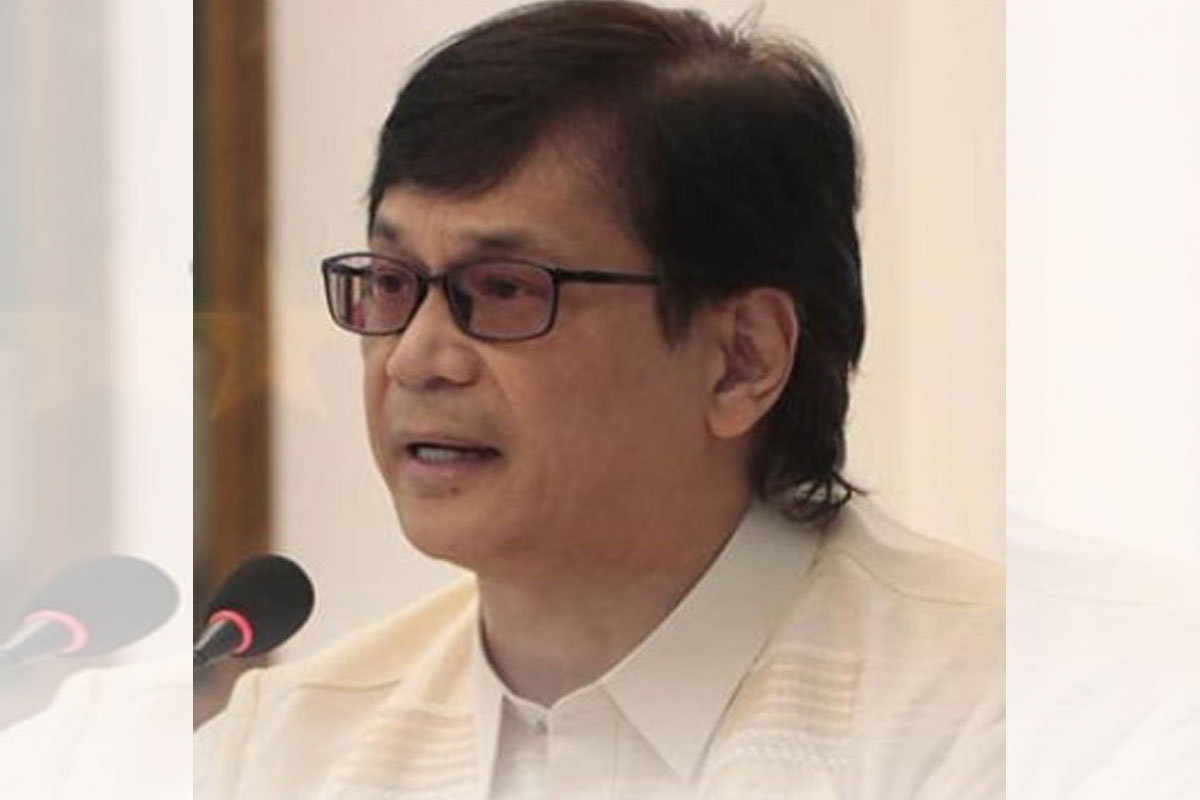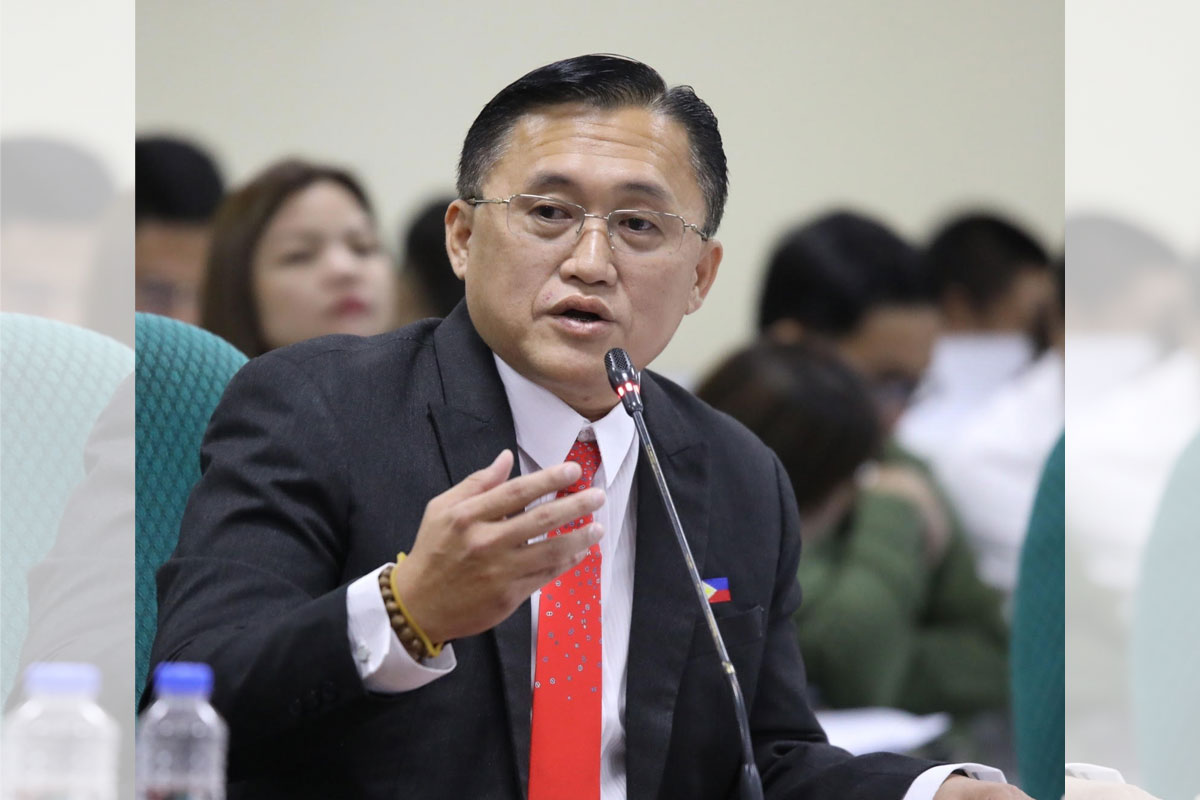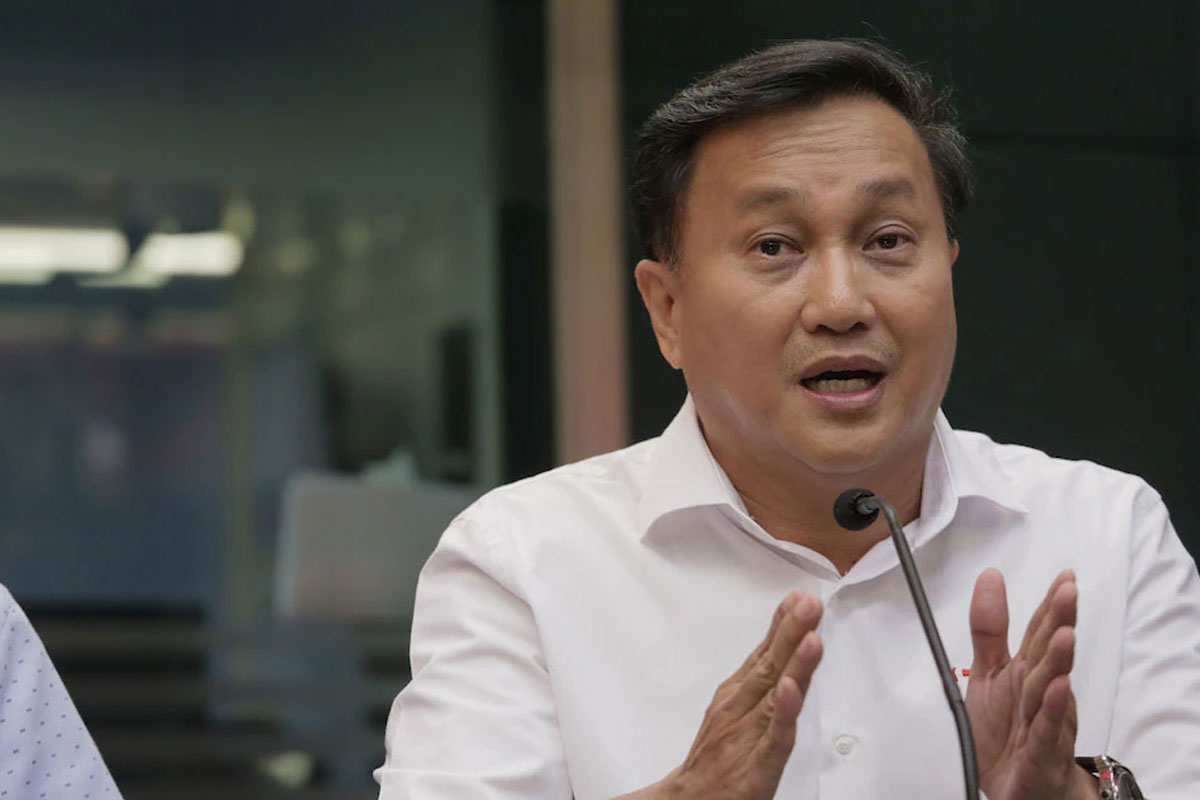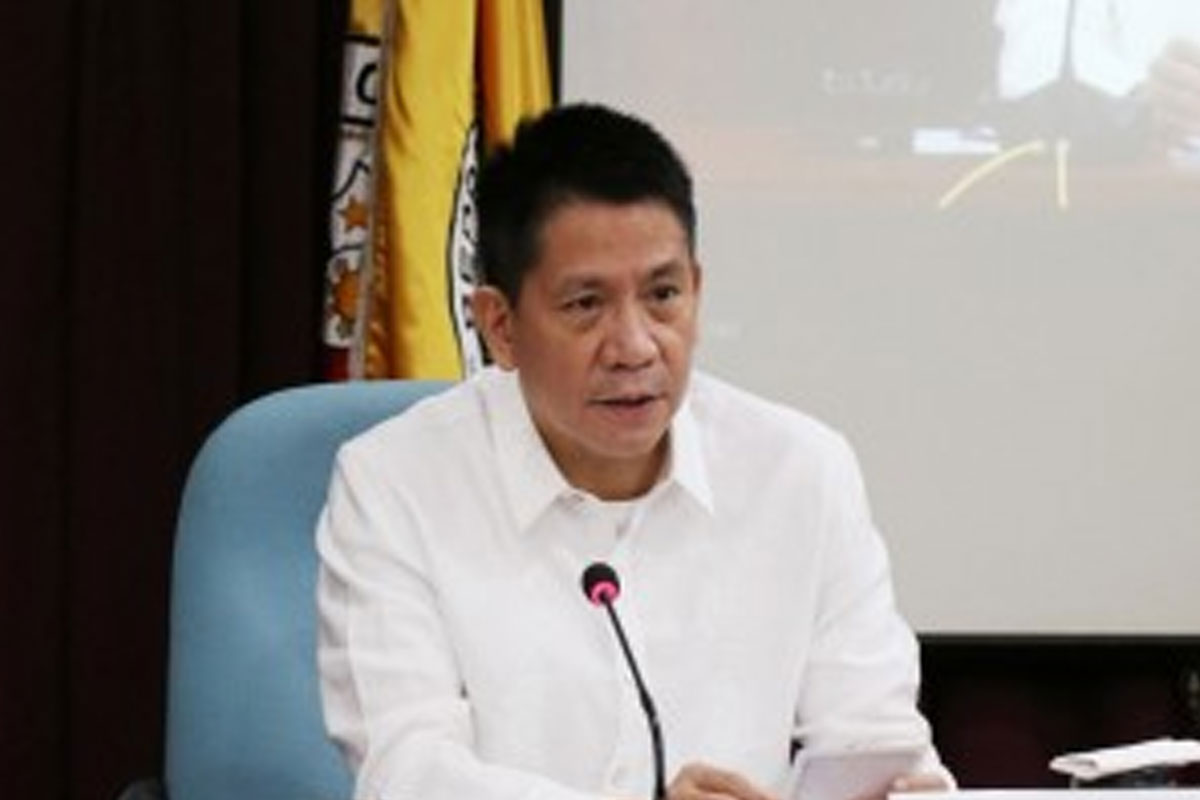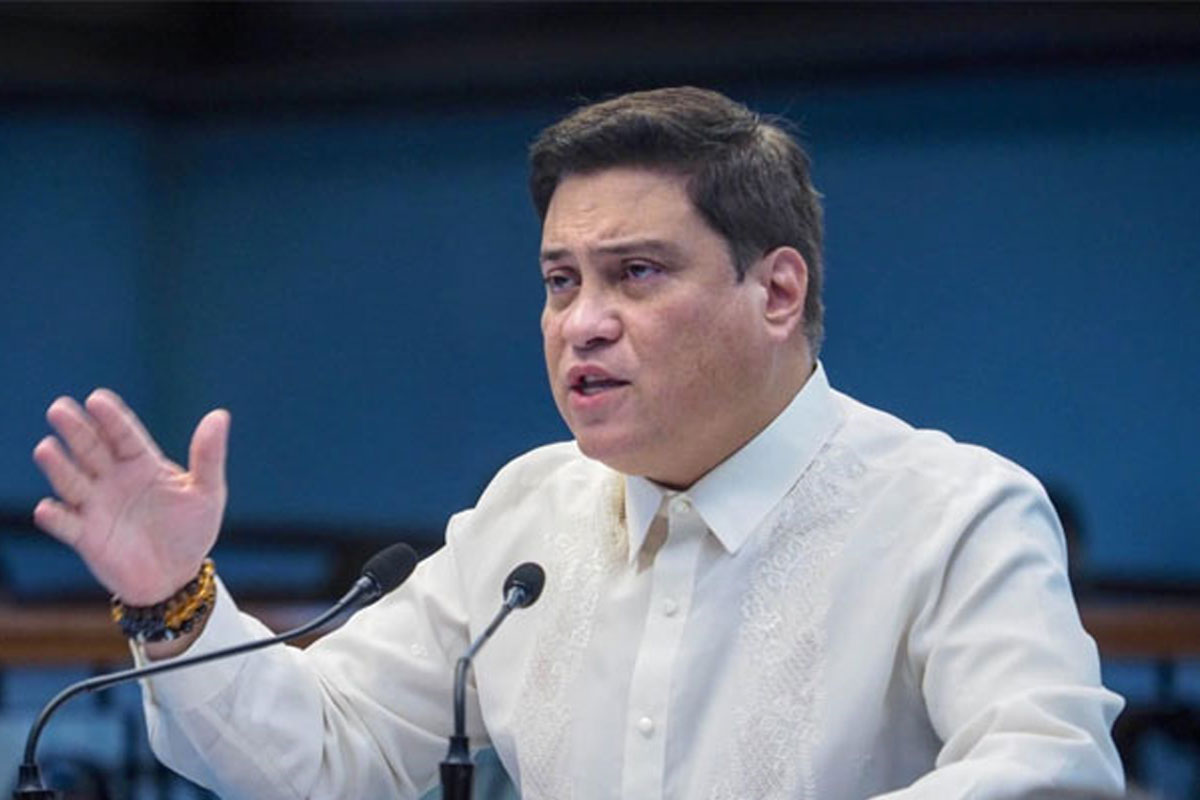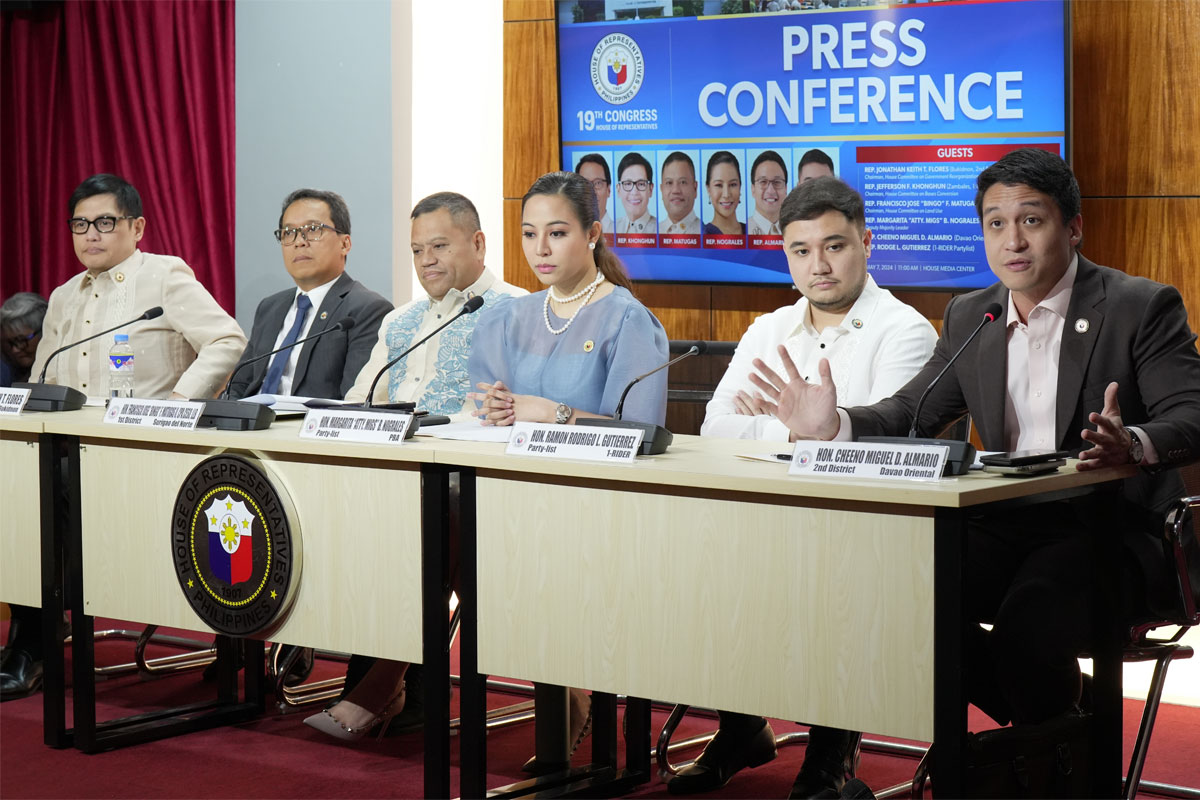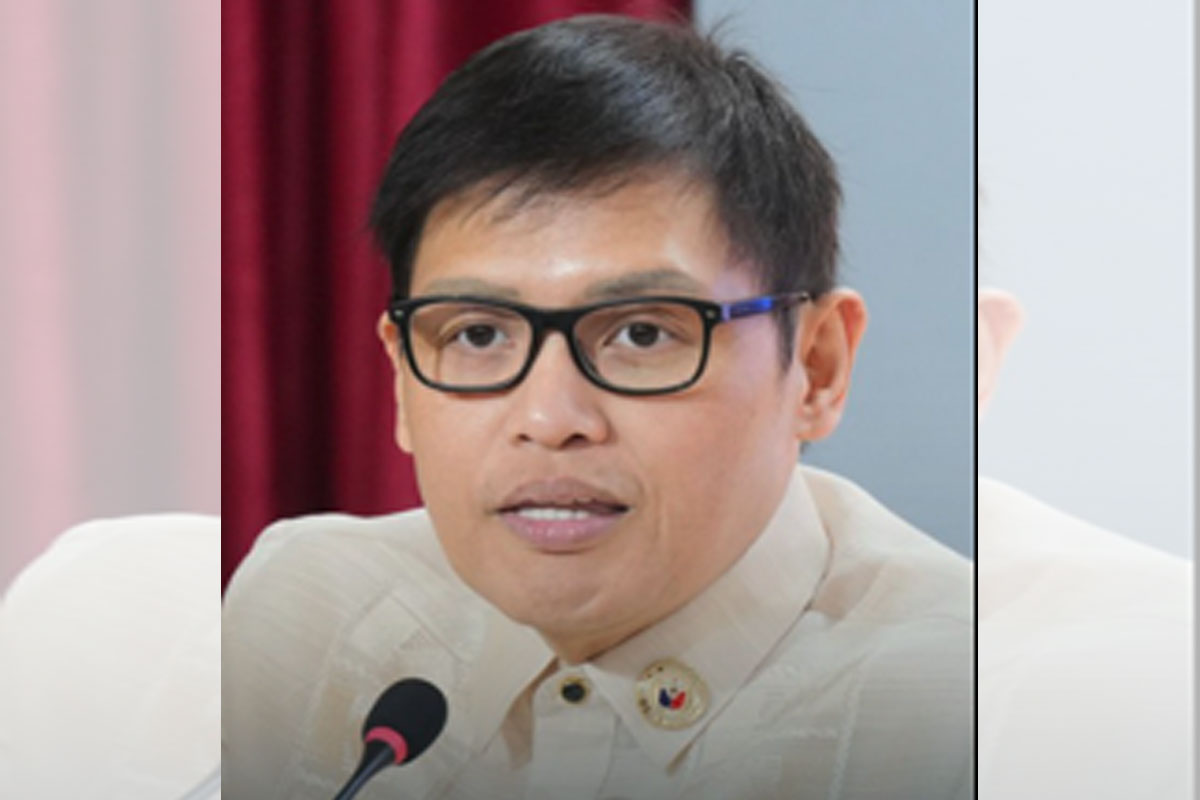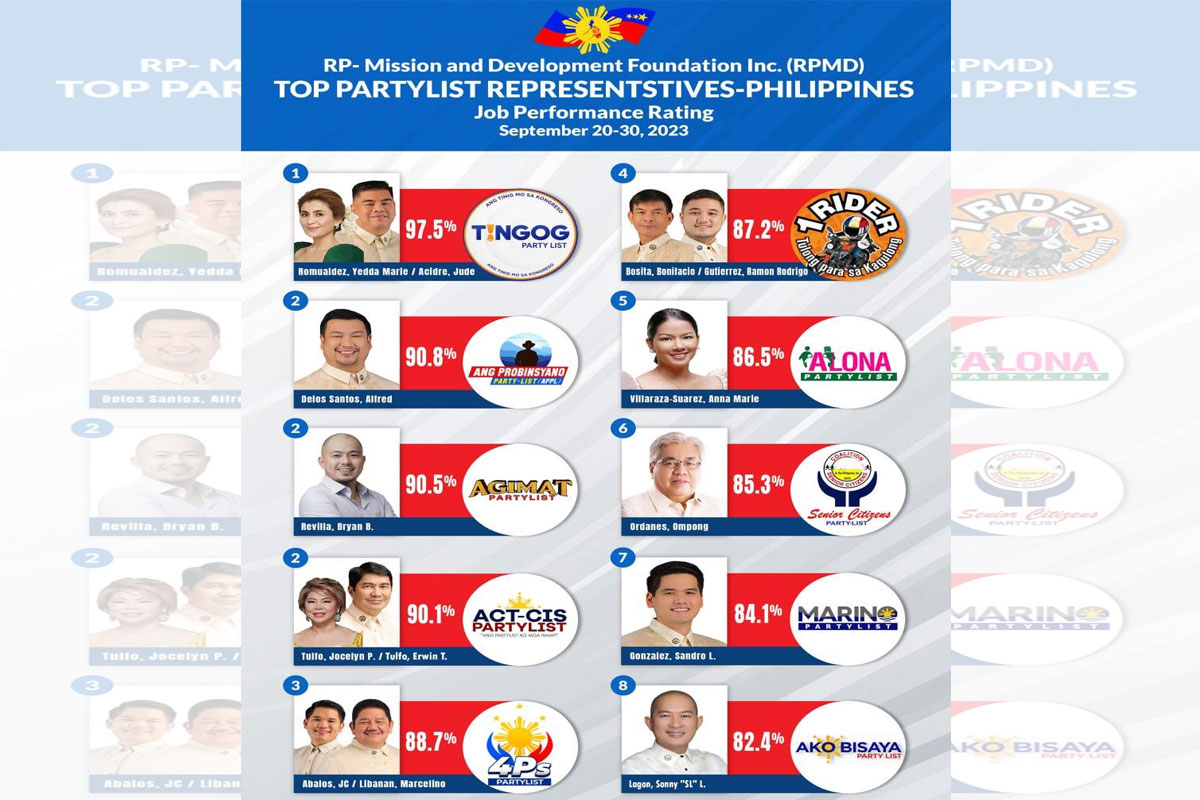
TINGOG still top PH partylist
THE “Boses ng Bayan” nationwide performance assessment, conducted by the RP-Mission and Development Foundation Inc. (RPMD), encompassed party-list groups in the House of Representatives. This evaluation was based on ten critical parameters: Representation of Marginalized Groups, Legislative Effectiveness, Advocacy and Awareness, Oversight and Governance, Constituency Service, Policy Development and Innovation, Budget Advocacy and Scrutiny, Networking and Coalition Building, Public Information and Education, and International Participation and Representation.
The recent independent and non-commissioned nationwide survey revealed the rankings of party-list groups in the Philippines based on their performance. Topping the list is TINGOG PARTYLIST, represented by Congresswoman Yedda Marie Romualdez and Rep. Jude Acidre, with an impressive 97.5% rating.
Dr. Paul Martinez, Global Affairs Analyst and Executive Director of RPMD said that a brief overview of the Tingog Partylist Centers reveals its origins during the COVID-19 pandemic when they established an additional office outside their conventional headquarters to better serve their constituents in a more accessible and expedient manner. With a newfound commitment to extend their support beyond the marginalized sectors, Tingog Partylist has since established 86 centers across the Philippines. These centers provide a wide array of assistance to Filipinos, encompassing educational aid, medical and hospital support, burial services, financial assistance, livelihood programs, and a range of other valuable initiatives. In addition, District Representatives from various regions across the Philippines have forged partnerships with Tingog Partylist to expand their reach and provide essential social and welfare services to a broader spectrum of Filipinos. This collaborative effort reflects a commitment to effectively serve and support communities across the nation, further enhancing Tingog Partylist’s mission of delivering assistance and aid where it is needed most.
Sharing the second position are ANG PROBINSIYANO PARTYLIST (Rep. Alfred Delos Santos) at 90.8%, AGIMAT PARTYLIST (Rep. Bryan Revilla) at 90.5%, and ACT-CIS PARTYLIST (Rep. Erwin Tulfo and Rep. Jocelyn Tulfo) with a 90.1% performance rating.
The third spot is occupied by the 4PS PARTYLIST (Rep. JC Abalos and Rep. Marcelino Libanan) with an 88.7% score, followed by 1RIDER PARTYLIST (Rep. Bonifacio Bosita and Rep. Ramon Rodriguez) in fourth place with an 87.2% score.
The fifth position is held by ALONA PARTYLIST (Rep. Anna Marie Villaraza-Suarez), scoring 86.5%, trailed closely by SENIOR CITIZENS PARTYLIST (Rep. Ompong Ordanes), with an 85.3% rating. MARINO PARTYLIST (Rep. Sandro Gonzales) takes seventh place with 84.1%, while AKO BISAYA PARTYLIST (Sonny “SL” Lagon) ranks eighth with 82.4%.
Ninth place goes to PBA PARTYLIST (Rep. Migs Nograles) with an 81.2% score and rounding out the top ten is TUTOK TO WIN PARTYLIST (Rep. Sam Verzosa) with 80.1%.
In the comprehensive nationwide survey, the performance rankings of party-list groups in the Philippines continued with COOP-NATCCO (Rep. Felimon Espares) in the 11th spot with scores of 78.6%.
In 12th place, Sagip Partylist, represented by Rep. Rodante Marcoleta and Rep. Caroline Tanchay, earned a 75.3% rating. DUMPER Partylist (Rep. Claudine Bautista-Lim) secured the 13th position with a 74.1% score, followed by Uswag Ilonggo Partylist (Rep. Jojo Ang) and AAMBIS-OWA (Rep. Lex Anthony Colada) jointly occupying the 14th rank with scores of 72.4% and 71.9%. The 15th place was taken by CIBAC Partylist (Rep. Eddie Villanueva) with a 69.3% performance rating.
Kabataan Partylist’s Raoul Danniel Manuel achieved the 16th position with a 68.1% score, closely followed by TGP Partylist (Rep. Bong Teves) at 67.6% and TUCP Partylist (Rep. Raymond Mendoza) in the 17th spot with 65.8%. The 18th position was claimed by LPGMA Partylist (Rep. Allan Ty) with a 64.5% rating.
ACT Teachers Partylist (Rep. Francisca Castro) ranked 19th with 63.2%, and Gabriela Partylist (Rep. Arlene Brosas) held the 20th rank with 61.20%.
The list concludes with the 21st to 25th places, featuring CWS Partylist (Rep. Edwin Gardiola) at 60.3%, Duterte Youth Partylist (Rep. Drixie Cardema) at 58.9%, Malasakit at Bayanihan Partylist (Rep. Anthony Golez Jr.) with 57.5%, 1PACMAN Partylist (Rep. Mikee Romero) at 55.6%, API Partylist (Rep. Michael Morden) with 55.2%, and Kalinga Partylist (Rep. Irene Saulog) at 53.7%.
Dr. Martinez expressed his deep admiration for the top 25 partylist organizations in the Philippines, emphasizing their remarkable dedication to delivering exceptional service. Despite the stringent criteria and rigorous standards in place, he stressed the importance of acknowledging and applauding these select 25 partylist groups for their exemplary performance.
These commendations extend beyond mere recognition; they serve as a testament to the relentless efforts and impactful contributions made by these partylist organizations. Their unwavering commitment to representing the interests of their constituents and championing critical causes on the national stage has not gone unnoticed.
The stringent parameters used to identify these top 25 partylist organizations are a testament to their excellence and effectiveness in fulfilling their roles. Dr. Martinez’s words of praise are a source of inspiration and encouragement for these organizations to continue their vital work and strive for even greater achievements in the service of the Filipino people.
Dr. Martinez emphasized that in assessing the performance of party-list groups in the Philippines, several vital parameters are used:
1. Representation of Marginalized Groups: This parameter focuses on evaluating the effectiveness of party-list groups in representing marginalized sectors. It involves assessing the impact of their advocacy on legislation and policies that affect these sectors, ensuring that the voices of underrepresented communities are heard and addressed in the legislative process.
2. Legislative Effectiveness: This aspect evaluates the success of party-list groups in proposing, enacting, and influencing legislation. It looks at the relevance and impact of the laws they advocate for, particularly in relation to their constituencies. This includes considering how well these laws meet the needs of their constituents and broader society.
3. Advocacy and Awareness: This parameter measures the efforts of party-list groups in raising awareness about issues relevant to their constituencies. It also evaluates their role in advocating for these issues at the national level, highlighting the importance of public engagement and policy influence.
4. Oversight and Governance: Under this parameter, the effectiveness of party-list groups in providing oversight and checks on government functions is assessed. It also involves evaluating their contribution to ensuring accountability and transparency in governance, which is crucial for maintaining public trust and effective administration.
5. Constituency Service: This aspect assesses the quality and impact of direct services provided by party-list groups to their constituents. It considers how these services address the specific needs of their represented sectors, ensuring that constituency needs are met effectively.
6. Policy Development and Innovation: This parameter evaluates the group’s contribution to policy development, focusing on inclusivity and innovation. It measures the impact of their policies on the broader legislative landscape, looking at how these policies contribute to progressive changes and improvements.
7. Budget Advocacy and Scrutiny: The involvement and effectiveness of party-list groups in the national budget process are assessed under this parameter. It involves evaluating their role in advocating for budget allocations that benefit their constituents and ensuring that fiscal policies are aligned with the needs of their represented sectors.
8. Networking and Coalition Building: This aspect evaluates the effectiveness of the groups in building coalitions and networks with NGOs, civil society, and other political entities. It assesses the impact of these coalitions on their legislative and advocacy work, emphasizing the importance of collaboration and partnership.
9. Public Information and Education: This parameter measures the group’s efforts in educating the public and their constituents about relevant policies and issues. It assesses the effectiveness of these information campaigns in engaging and informing the public, which is vital for democratic participation and informed decision-making.
10. International Participation and Representation: Finally, the involvement of party-list groups in international affairs and forums is evaluated. This includes assessing their effectiveness in representing Philippine interests and their sectors on a global stage, which is essential for international relations and global advocacy.
Together, these parameters provide a comprehensive framework for assessing the performance of party-list groups in the Philippines, ensuring they fulfill their roles effectively and contribute meaningfully to the nation’s legislative and political processes.
The survey methodology employed a combination of quantitative and qualitative research methods, encompassing statistical analysis, document review, stakeholder interviews, and extensive public polling. This comprehensive approach was instrumental in conducting a thorough evaluation of performance within these critical sectors.
Furthermore, the “Partylist Representatives Public Satisfaction” survey constitutes an integral component of the broader “RPMD’s Boses ng Bayan” national poll. Conducted independently during the period from September 20 to September 30, 2023, the survey reached out to a total of 10,000 registered voters hailing from diverse provinces. This rigorous sampling process was designed to ensure precision, with a margin of error of ±1 percent at a 95% confidence level. As a result, the survey findings provide an authentic and profound reflection of the electorate’s perspectives and sentiments.




